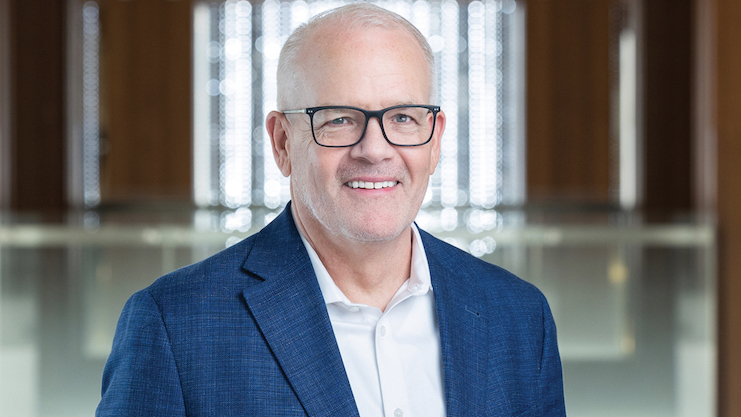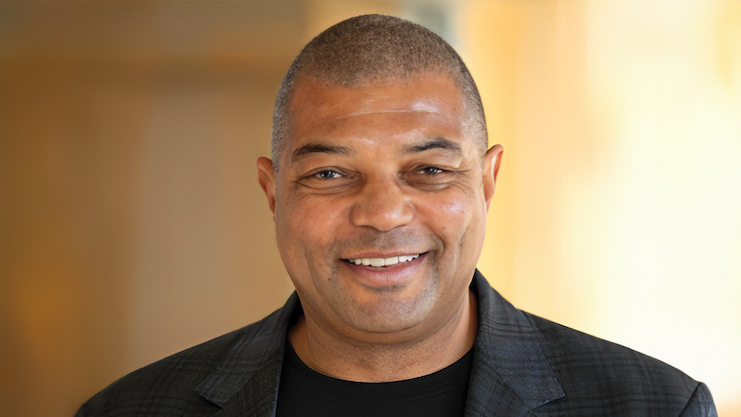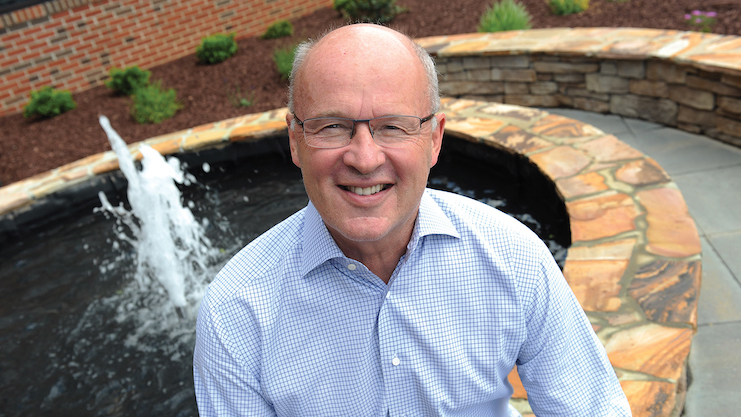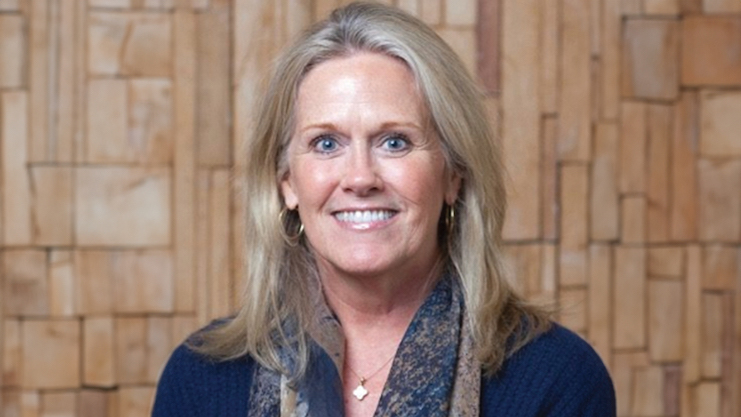
LODGING recognizes four C-level executives who have helped accelerate growth within their respective companies and provided positive contributions to the lodging industry as a whole in 2023, as well as throughout their careers. We would like to honor and congratulate David Duncan, president/CEO, First Hospitality Group; Warren Fields, president/CEO, Pyramid Global Hospitality; Mark Laport, president/CEO, Concord Hospitality; and Nan Cummings, COO, InterMountain Management.

David Duncan: First Hospitality president and CEO on the drivers for the company’s growth
David Duncan brought over 20 years of global experience in managing high-performing teams to First Hospitality when he joined the company as president in 2018. Beginning his career in public accounting, consulting, and finance, he soon found his true passion in the hotel and travel space, focusing on lodging investment and operations. That dual skillset was ideal for First Hospitality, a hotel development and management company founded in 1985. Over the last five years, Duncan has played a prominent role in continuing the company’s growth, becoming president and CEO in 2020.
“When I joined First Hospitality, the company had a great reputation for its culture, investment track record, and great relationships across the industry that created a solid platform for growth,” Duncan related. “Since then, we’ve been able to double the size of the portfolio, create a great partnership with The Georgetown Company to support further growth, and position our Hotel Management Platform as the obvious choice for sophisticated hotel investors looking to outperform the market. We’ve accomplished this growth while also strengthening our culture and relationships with owners and investors.”
A New Partnership
In September 2023, First Hospitality acquired Hostmark Hospitality Group, a Schaumburg, Illinois-based management company. This transaction added 17 hotels to First Hospitality’s portfolio, bringing the total to over 70 hotels and strengthening its presence in the Midwest while expanding its footprint into California, Texas, and Florida. “We made this deal in a year when M&A and investment deals in the industry were down 30 percent or more in the first three quarters this year compared to 2022,” said Duncan. “It’s a testament to a lot of hard work, positivity, and an eye toward the future of both teams to make it happen.”
He went on to highlight the “remarkable synergies” between the Midwest-based, family-founded organizations and their promising future together. “Shared values, passions, and dedication to delivering outstanding hospitality management in every market served are hallmarks of what is now a combined foundation that we are most excited to build upon,” Duncan said. “I’m particularly enthusiastic about the advantages as our businesses continue to integrate, such as attracting top-tier talent, improved operation efficiencies and investments to optimize hotel performance and guest experiences.” Duncan provided some insight on his approach to dealmaking, which is not entirely numbers-driven despite his finance background. “Even though I was trained as a quantitative analyst and consultant, I know that most people make decisions based on emotion,” he observed. “I believe a seasoned professional knows the right thing to do in the first few seconds. The key is to follow that gut reaction, and if I can’t disprove it with analytics, I lean into it. And then when supported by the right people, that’s the recipe for success.”
Employee Engagement
Also in 2023, First Hospitality made several senior-level strategic hires and continued to invest in its team, creating a fulfilling workplace that draws excellent candidates and promotes retention. “No question, retaining employees will continue to be a significant challenge in our industry, and we will continue to invest in people, from our Inner Circle incentive for general managers to our ‘Live Free/Drive Free’ reward program for hourly staff,” said Duncan. “With an employee turnover rate 10 percent below the average for the hotel industry in 2023 and internal promotions of more than 50 associates in 2022 alone, we are clearly on the right track.”
Engaged associates not only tend to stay with a company long term, but they also tend to deliver better service to guests. And that human element in hospitality is key for the company. “As the world emerged from the pandemic, technological changes, like kiosk check-in or QR codes to name a few, were taking the forefront,” Duncan said. “While we can and do deliver cutting-edge tech, we are doubling down on the belief that our associates truly make the guest experience memorable. To that end, we’re keenly focused on making our hotels the best place to work, which ensures that our hotels are the most hospitable to our guests.”
Looking Ahead
One of First Hospitality’s goals over the next five to 10 years is to further develop its restaurant and bar operations business. “Restaurants and bars are taking up a bigger footprint in our portfolio and deserve an independent approach, especially in soft-branded and luxury hotels,” Duncan said. “Engaging, lively, and even buzz-worthy dining experiences are key as First Hospitality continues to build an upper-upscale, full-service, and luxury portfolio.”

Warren Fields: President/CEO ‘benchmarks’ continued growth for Pyramid Global Hospitality
While President/CEO Warren Fields is quick to deflect plenty of credit to the company’s executive and operations team, there’s no denying that Pyramid Global Hospitality has emerged as one of the industry’s largest third-party management companies under his watch and is showing no signs of slowing down.
Bolstered by the merger of Benchmark Hospitality in 2021, Boston-based Pyramid Global Hospitality was rebranded last year and comprises a handful of distinct operating divisions, including Benchmark, Pyramid Luxury & Lifestyle and Hamilton, Pyramid Europe. Pyramid Global is celebrating record growth and development in the period since the merger, including the addition of 59 properties to the company’s portfolio, six key executive promotions, and a significant investment in the technology and tools provided across the collection.
Boasting a nearly 40-year career in hospitality, Fields—who cofounded Pyramid Hotel Group along with former CEO Richard Kelleher and former COO Jim Dina—ascended to the top spot in 2019 after having held the position of chief investment officer since 1999. Fields previously helped grow the Promus Hotel Corporation through management roles in development, acquisitions, and operations, last serving as VP, development and operations before Promus was sold to Hilton Hotel Corporation in 1999. In 1985, after graduating from the Cornell University School of Hotel Administration, Fields began his career with Beacon Hotel Corporation, a predecessor to Promus.
Despite his apparent qualifications, Fields described himself as a “reluctant CEO” and pointed out that his founding partners chose to retire simultaneously, making him “the last man standing.” He shared some of his perspective on being at the helm and how the position has evolved. “The one thing I will say is that it’s allowed me to think about things differently and do things differently, because [as CEO] you’re the final decision maker. However, you have to build a consensus within the team in order to make things work,” he said.
Fields elaborated, “Our success is not driven by me, our success is driven by the 17,000 associates that we have that are executing every day. All we’re trying to do at the above-property level is to give them the resources, the tools, and the encouragement to do their job,” he said, also touting the impact of “a really good executive team.”
An Empowering Culture
Fields described the culture at Pyramid as “very inclusive” as he reinforced a team-based approach.
“The culture is to push the decision making down to the lowest level possible and allow people to fail. People find that hard to understand. I don’t believe that people fail on purpose; they fail because they try something and ‘oops, it didn’t work.’ What are you going to do about it? The really good ones do some self-reflection, make changes, and try and get better. That’s what we try to do; we try to strive for excellence, and excellence is a fleeting thing,” he said. Fields continued, “Our culture is one where anybody should be in a position where they should be able to challenge something, respectfully. They should be able to voice their opinion, respectfully, and it should be heard.”
The CEO explained that in addition to striving to be the management company of choice for owners, the goal for Pyramid is to be a destination within the workforce.
“We also want to be the employer of choice. If we’re the employer of choice, it all gets back to attracting and retaining great talent. If you’re the manager of choice, you’re able to do that,” he stated.
Expanding Portfolio
The portfolio for the management company—which manages both independent boutiques, luxury urban hotels, and traditional branded properties—is now is up to 245 properties, roughly 40 of which are owned assets. Pyramid continues to grow with the help of mergers and acquisitions, having acquired Provenance Hotels and its portfolio of 12 boutique properties in the Pacific Northwest at the end of 2022.
Earlier this year, the company added six properties, Flamingo Resort & Spa and The Sandman Hotel in Santa Rosa, California; Wayfinder Newport Hotel in Rhode Island; Hotel Paradox – Autograph Collection in Santa Cruz, California; and The Preserve Sporting Club & Residences in Richmond, Rhode Island, have joined the Benchmark Pyramid Luxury & Lifestyle division. Additionally, The Westin Tampa Bay in Florida is now part of the Pyramid Global Hospitality’s branded division.
Fields talked about some of the synergies that came about as a result of the Benchmark merger, and what it ultimately meant for the company. “I think the most exciting thing about the merger is that the company has added a net 73 hotels in that two-year period. … What that tells us is that the market has accepted the thesis, which was to bring those two organizations together. You had this really fantastic company [in Benchmark] which had been involved with luxury, lifestyle, independent hotels, and then you had a really good company [in Pyramid], which primarily focused on branded big-box hotels. You put the two together and you have one-stop shopping for our owners,” he said. Finally, Fields maintained he is “most proud of our organization” with regard to the performance of the Pyramid portfolio. He noted the company’s same-store hotels year-over-year have increased their RevPAR index by some 230 basis points.
“As long as we continue to do that, we will be a sought-after organization from a management perspective and what we really want to be. We want to rise above the fray where people think the hotel management industry is a commodity. I don’t believe that, and we’re proving that it’s not a commodity business. If you hire the right manager and the right property, they’re going to outperform, and that’s what we try to do. We strive to outperform,” he noted.

Mark Laport: Concord Hospitality leader on how he succeeded by never settling
President and CEO Mark Laport founded Concord Hospitality Enterprises Company in 1985 as both a hotel management and development firm. With Concord now ranked ninth in size among hotel management companies, Laport said he is aiming to join the top five, a goal he believes can be realistically attained using proven approaches, an excellent leadership team, and a whole host of relationships and capabilities amassed over the years. Laport said he had been a biology major with plans to become a doctor before heading down a different path. Yet it wasn’t so much that he actually wanted to be a doctor as to be his own boss, he realized later. Now, at the helm of a company with 150 hotels and nearly 7,000 employees, that’s an achievement he can definitely cross off his bucket list.
In the process of getting from where he began to where he is now, Laport said he learned valuable lessons—sometimes the hard way. He learned about development while working as a home builder, the basics of food and beverage as a small-restaurant owner, and the value of “selling, not telling” as an insurance brokerage business owner. Also, as a competitive athlete in his youth, he learned not just how to win as a team but also how to lose: “You just get up and do it better the next time and put the loss behind you.”
Financing the First Property
Ultimately, he had the chance to put it all together in the hospitality career he pursued in the years after a group of early Holiday Inn franchisees invited him to join their venture.
Once on his own, he recalled struggling to gain financing for his first property, a Hampton Inn, but said financing got easier with the addition of each successful hotel, especially once he had more than 10. He said a “pivotal point in our growth” came when his company earned the right to become one of the first three franchisees of Courtyards by Marriott in the early 1990s; opportunities with Hilton, Hyatt, and others followed.
While slogging his way from one hotel to the more than 150 he now has, he worked so hard—“often 60 to 70 hours a week”—that neither of his two children has chosen to enter the industry. What they didn’t understand, he said, was that it wasn’t work for him; it was fun.
He said he owes the success he has enjoyed since being bitten by the hospitality bug to working hard, surrounding himself with good people committed to common goals, and never compromising when it comes to quality and integrity.
Building on a Proven Approach
Laport said Concord will continue its growth trajectory by building on its proven approach and relationships—the most important of which is with its team members. “We are able to manage best-in-class hotels the right way by focusing on running our company the right way. This includes how we operate, attract personnel, and how we reward and celebrate our team. In fact, we were certified by Fortune magazine as ‘a great place to work,” and mentioned, too, as one of the best places to work for women and millennials.”
Laport said he doesn’t work the grueling hours he used to, and finds time to do other things he enjoys, like traveling worldwide with his wife, playing golf, and exercising. “At this point, I may not need to be working, but I do it because it’s great fun—invigorating and energizing,” he said.

Nan Cummings: InterMountain COO on the ties that bind company team members
Nan Cummings is COO of InterMountain Management (IMM), a family-owned company focused on the development, third-party management, and renovation of select-service and extended-stay hotels across the United States. Although the company has grown its portfolio from three to nearly 100 properties, she told LODGING that the company still strives to maintain a family-business culture.
Hospitality Roots
Cummings said her hospitality journey began at age 11, when her parents moved their family from Kansas to Arkansas after becoming owners of two motels there. She recalled how she and her three siblings, including IMM CEO Dewey Weaver, jumped in to help their parents get started in the hospitality business.
Although IMM’s growth strategy today focuses on development/third-party management, Cummings said that in the early days, her father grew the business by buying and selling hotels, which ultimately brought them to their current homebase in Monroe, Louisiana.
Cummings attended the University of Arkansas but returned to work at the family hotel in Monroe the summer after graduation. Although she had planned to head to Dallas after college, she decided to stay in Monroe and enter the family business after meeting the man she later married there. She said her career began “very organically, basically doing what needed to be done because that’s what families do.” Her role expanded into HR, then director of operations, and now COO. She held that this somewhat meandering path ultimately served her well. “My path to COO happened slowly but became an obvious destination due to my experience and time with IMM.”
Cummings highlighted some of her many mentors, beginning with her parents: “I saw their work ethic and the heart that they had for the associates; my parents treated them like family from the beginning.” Next is her brother, Dewey, who she described as “a visionary” whose leadership style is an important part of the company culture. “He keeps his eye on the big picture and gives us freedom to simply do our jobs. We know what’s expected.” Third on that list are the company’s third-party owners. “They are brilliant people who ask good questions. They make us a better management company.” Last “but certainly not least,” she acknowledged the company’s associates, both property level and above-property level. “I am fortunate to surround myself with people I trust to give me honest feedback, to keep us on the pulse. From our many loyal long-term associates, we know you can’t put a price on loyalty.”
Training and Career Advancement Opportunities
Cummings, who called the IMM culture “second to none,” described the components that support it, including a training program created by IMM’s VP of training, who has been with IMM for 22 years: “He blends the nuts and bolts of running a hotel while sprinkling in a lot of our culture throughout the training process.” There is also their “AGM climbing mountains program,” which she said “helps IMM to promote from within, which in turn, continues to build on our culture.” Then there is “duck camp,” a relationship-building gathering that includes GMs, hotel brand leaders, and third-party owners.
Cummings reflected on how much the company has grown over the years. “We now have 100 properties in 22 states from California to Florida, a home office in Monroe, and an above-property team based remotely to directly support our hotels/owners.” Yet, she said, “we are family. Ours is a relationship-based company with a strong culture, which we believe gives us a competitive advantage when it comes to hiring associates as well as growing our portfolio.”











